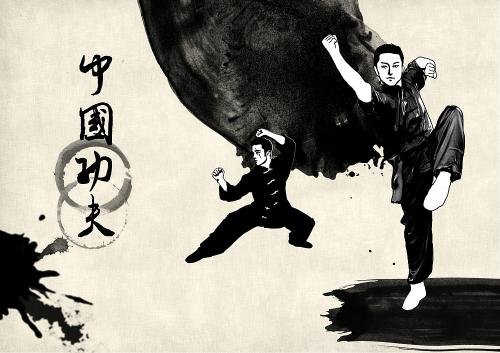A boxer continuously challenged Chinese masters just because they announced they can easily defeat rivals by using Chinese Kung fu.
“Bruce Lee is just a kung fu actor. He can’t fight,” he said with scornful sincerity. This is the comment of Xu Xiaodong to Bruce Lee on his personal YouTube channel. Xu is an MMA coach in Beijing. He makes a living by teaching students. But over the past three years, he has challenged many Chinese martial arts learners who claim they are traditional Chinese martial arts masters. Bruce Lee is credited as the spokesman who brought Chinese martial arts to the world. Even decades after he died, he still has hundreds of millions of fans around the world. Xu’s negative comments to Bruce Lee irritated many Bruce Lee fans and raised the discussion about Chinese martial arts.
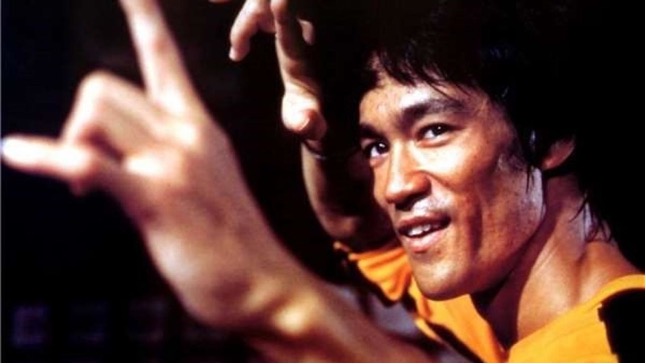
“There are so many liars in the Chinese martial art communities. I’m just trying to clean up their lies through challenging them.” It seems Xu showed a little excitement when talking about “liars”. In the span of three years, he participated in more than ten competitions, in which he all won, very easily. Among the many factions of Chinese martial arts that have conflicts with him, Tai Chi is the special one.
Actually, in China, people are used to calling Chinese martial arts as Kung fu. There are many different martial art fractions in China, such as XIngYi, Ba Gua, and YongChung. These different martial art fractions have different fighting skills, so they are independent of each other. For example, TaiChi masters said they are good at using soft power to beat opponents, while many boxers don’t believe it.
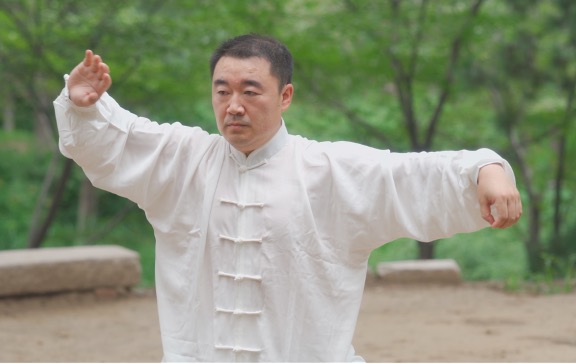
“I can’t say that the masters who claim that Tai Chi has combat value are all fake. I have no proof, it’s unfair.” But when asked how many people are fake, he said “about ninety-nine percent”. The way he speaks is a little crazy because when using 99%, he is challenging not only the martial arts masters but also the entire Chinese Tai Chi community. Do Chinese traditional martial arts have actual combat ability?
Lei Lei is a Tai Chi traditional martial arts master who publicly claimed that he is the successor of Tai Chi tradition. During a CCTV (a Chinese broadcasting company) show, Lei Lei showed some stunts, such as “slapping watermelons with one hand” and “holding the bird on arm”. The so-called “slapping watermelon” means that he can use the Tai Chi skill to slap a watermelon so that the surface is not damaged, but the inside of the watermelon is damaged due to the power of the slap. The so-called “holding the bird on arm” means he can let a bird rest on his arm and have it not fly away. If the bird wants to fly away, it needs a force on the ground, and Tai Chi masters can use techniques to offset the force of the bird leg.
“Tai Chi can be used in combat, and it is mainly used to overcome rigidity with softness.” Zhang Faye is a Tai Chi learner who believes that Tai Chi can be used in real combat. He is a physician and he has practiced TaiChi more than 20 years. “Western fighting focuses on frontal attacking, but Tai Chi is different. Tai Chi focuses on defending and is good at using a weak force to defeat a strong one. Therefore, Tai Chi has one advantage over Western fighting to some certain extent because it can use weakness against strength. Unlike western fighting, it is not limited to weighting class.”
It’s not just Zhang who believes Tai Chi is capable of actual combat. Many Tai Chi masters in China believe that Tai Chi has some mysterious power. They have often posted videos showing these mysterious powers online. Fang Yan, a Tai Chi master from Hebei province, once posted a teaching video on the internet. In this video, many people push her, but she just shakes her body then many people were pushed down. The video quickly became popular because many Chinese Tai Chi fans gave the video a thumbs up. People called Fang “the strongest Tai Chi pusher”.
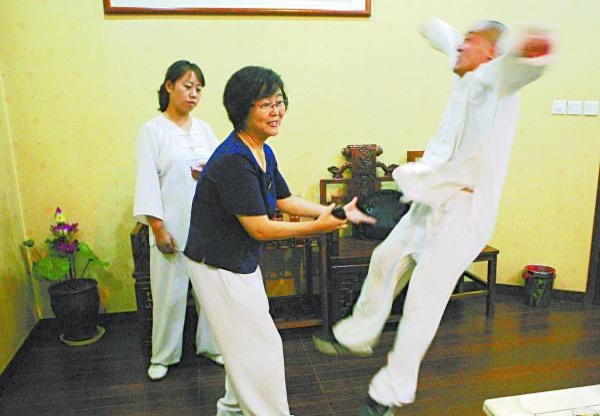
Are these videos enough to prove that Tai Chi has mysterious but powerful techniques that can be used in combat? Many people have such a question, Xu Xiaodong is one of them.
To prove whether Tai Chi is capable of actual combat, he began to challenge Tai Chi masters. Because in Xu’s opinion, most of TaiChi masters are liars so they don’t dare to accept his challenge. He asked many TaiChi masters to spar with him. However, what makes people unexpected is Lei Lei, the TaiChi master who ever showed the TaiChi stunts on CCTV, promised that he is willing to spar with Xu. Therefore, they appointed that holding a competition in Chengdu.
on the 27th of April 2017, the competition was successfully hold in Chengdu. However, the process was beyond people’s expectation. Xu Xiaodong only took 13 seconds to knock Lei Lei down, then the referee announced the match was over. Suddenly, Xu became famous on the Internet.
How did this happen? CCTV reported on Lei Lei many times on programs, where the journalist believes he has some mysterious Kung Fu skills. Why was he knocked down by an unknown challenger in 13 seconds? From that day on, the debate about whether ‘Chinese martial arts have actual combat abilities’ continually hit headlines in China.
“When Chinese Kung Fu was invented, it had combat value.” Liang Hong, a former sports magazine editor, who researched the subject of Chinese martial arts for over 10 years. “Tai Chi was created because it can be used for self-defence. If you practice Tai Chi, you can protect the properties and yourself from robbers. So, when Tai Chi was first invented, it must have had actual combat ability. “
In his telling, the truth of Tai Chi’s history is slowly revealed. “One of the founders of Tai Chi was called Yang Luchan, who was a dock porter from the Qing Dynasty. After learning some martial art techniques in Henan province, he invented a new type of fighting technique and named it Tai Chi. People who learn this kind of fighting skills can become safeguards, travelling with caravans to their destinations in case they are robbed.
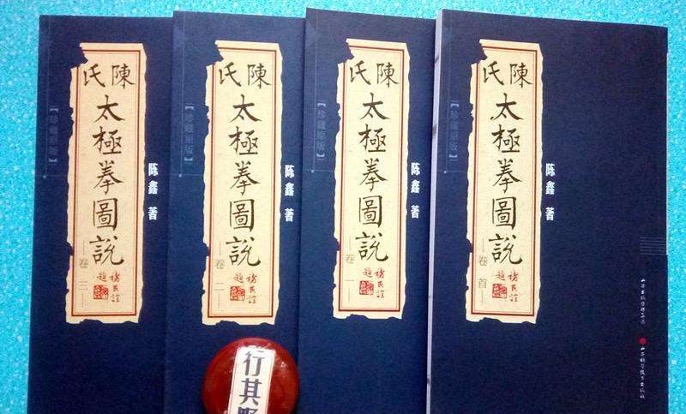
“However, with the continuous progress of science and technology, especially after the invention of guns, Chinese merchants gradually believed in professional safeguarding teams who had guns, which resulted in some combat skills being abandoned. Chinese martial arts gradually lost the combat environment, the combat ability of martial art began to decline.” Liang said.
In fact, from the 20th century, the movements of Chinese martial arts masters had become to appear very ugly during competitions. Chinese people often satirized Kung Fu as “Wang Ba Kung fu”. “Wang Ba” means tortoises, representing the person as clumsy and slow. “Now many Chinese people believe that masters in the past are excellent, while the successors have not learned well. This view is influenced by traditional Chinese thinking.” Liang added “As long as there is no actual combat environment, Chinese Kung fu is impossible to have actual combat ability.”
After founding the People’s Republic of China, the situation deteriorated even further. The Communist Party of China thought fighting is an uncivilized behavior, so the government banned the custom of private competitions and transformed martial arts into a form of gymnastics and dancing. This can increase the performance value, while it would limit the development of combat ability in Kung Fu.
After the reform and opening up period of China, the government tried to re-launch Chinese martial arts competitions, but because the Kung Fu fighting competitions now seemed quite ugly, the government were no longer advocated to organizing these events. Eventually, Chinese martial arts became the current situation which is seen today.
“On the other hand, Chinese martial arts have different aims compared to Western boxing in facing rivals. The purpose of western fighting is to knock the rival down and win the match, while the purpose of Chinese martial arts is to make the rival hurt and lose the ability to attack” Zhang expressed quite seriously when he elaborated on Tai Chi techniques. “For example, kicking the crotch and piercing the eyes are very common in traditional Chinese martial arts because they can quickly harm the rival, but these are banned in modern competitions,” Zhang said.
What he said is true. Modern fighting rules ban many dangerous movements, such as kicking the crotch and attacking the back of the head. These rules are to keep competitors safe. To decrease the damage, the organizers will even require every competitor to wear protective pads, while all protective gears do not exist in Chinese martial art rules.
However, this explanation was strongly denied by Xu Xiaodong. “Those people who believe the explanation about TaiChi and modern rules have rarely participated in actual combat,” Xu said with disdain. “If professional athletes are allowed to remove their protective pads and hit the rival’s vital body parts, traditional martial arts masters will lose the competition quicker.” He added, “By establishing rules, we can protect traditional martial arts masters”.
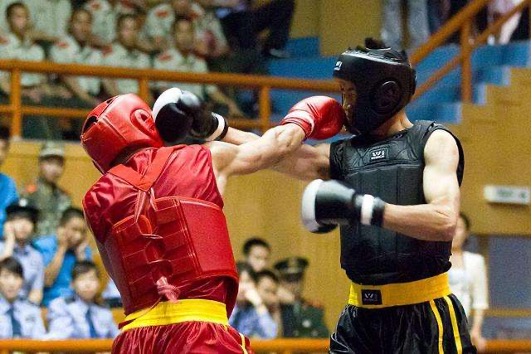
There is a story in the Chinese martial arts community that “mysterious masters never show themselves to the world, they always hide in the mountains and forests”. Many Chinese believe it, even if there is no concrete evidence for it. However, Xu Xiaodong doesn’t believe it. “This doesn’t make any sense. A person’s actual combat ability can only be improved by constantly fighting and competing with others. If a person stays in a mountain and forest all day, how can he gain actual combat experience? ”He said. When talking about the reason why people tend to believe the story, Xu said,” they are all cheated by Chinese martial arts novels.”
Chinese martial art novels indeed give a deep imprint to Chinese people. There were a group of fantastic Hong Kong novelists who appeared in the 1950s, such as Jin Yong, Gu Long and Liang Yusheng. They serialized Chinese martial arts novels on newspapers and magazines, which mainly wrote stories about some protagonists who had adventures and saved the country after learning Kung fu. It is similar with the knight novels of the Middle Ages in Europe, but these stories instead feature traditional Chinese martial arts elements such as “TaiChi” and “Nine Yin skeleton claw”. As same as TaiChi, Nine Yin skeleton claw is also one kind of Chinese martial arts that mainly use nails and fingers for attacking opponents.
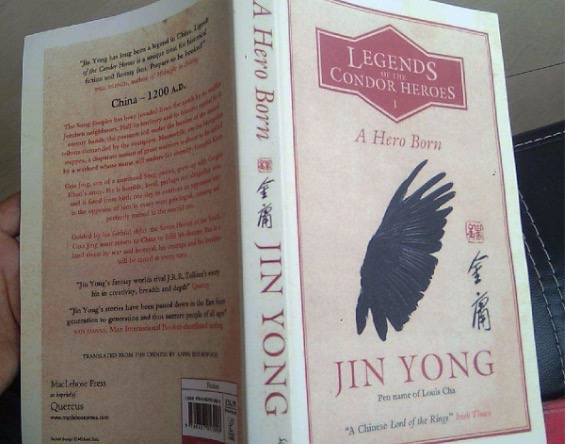
More importantly, Chinese martial arts were mythologized in these novels. For example, after practicing “light kung Fu”, people can easily fly in the air, climbing over the city walls which are over ten meters high. After learning Tai Chi, people can easily defeat hundreds of enemies by using miraculous powers. Many Chinese martial art books have been translated into English, such as “Legends of the Condor Heroes”.
The majority of people like expressing their opinions and showing their theories, while few people are willing to practice’. After Xu’s match with Lei Lei, many media outlets began to expose fake Tai Chi videos. Yan’s pushing hand video was disclosed by CCTV; Lei lei admitted that he played some tricks to the watermelon in advance for the show’s effect. Xu Xiaodong also continues to challenge the masters who claim to defend the reputation of Chinese martial arts.
However, up until now, the debate about Chinese martial arts is still not over. There are still various martial arts masters appearing on the internet and in reality. Comments about Chinese martial arts are also polarized. Does Chinese martial arts have actual combat value? No one can give a definitive answer. But the only thing we do know is that Xu won all the competitions, while the losers are the masters who once claimed to be the inheritors and tried to maintain the reputation of Chinese martial arts.
